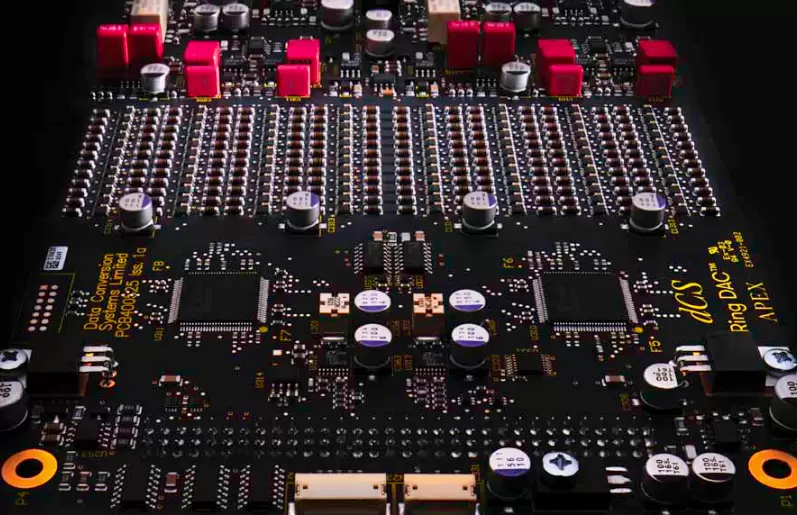Understanding the Pinnacle of Technological Achievement: What is Technology Apex?
Welcome, curious reader. Have you ever pondered where today’s astonishing innovations may lead?
Technological progress now seems ubiquitous, but what does “technology apex” truly represent? The article explores history’s past apexes to glean clues about our potential future.
The nature of progress guarantees we’ll never foresee its form until emerging. Yet we can reflect on recurrent patterns and dangers when shortsightedness outpaces wisdom.
By understanding apexes through a compassionate lens, perhaps together we can ensure technology uplifts humanity.
A Glimpse of Past Apexes:
Let’s first examine one of our species’ earliest documented apexes, fueled by coal and steam power during the late 1700s early 1800s Industrial Revolution.
Across Britain and Europe, manually intensive crafts suddenly faced factory scale competition. Mills hummed with weaving looms where previously a family business thrived.
Some fundamental steam driven technologies emerged then, shifting civilization’s course. Thomas Newcomen in 1712 and James Watt in the 1760s pioneered the steam engine supplying reliable rotational force wherever connected.
The adaptable prime mover accelerated industrialization throughout sectors.
Steamboats then took to America’s waterways from 1807 as Robert Fulton’s inventions overtook slower horse drawn river transportation.
Freight shipping scaled while disconnected settlements linked in growing trade networks. Rail followed in 1830 as the momentous Liverpool and Manchester Railway inaugurated passenger service and goods transport by iron road outpaced horses and carriages.
Over just decades, socioeconomic landscapes transformed dramatically with new industries, employment types and urban living standards elevated for many.
Yet the progress came with costs too, as harsh working conditions led to public outcry. Lawmakers slowly enacted reforms addressing child labor and workplace safety as discussion around equitable progress began.
Electricity sparked another apex’s beginnings in the late 1800s. Thomas Edison electrified entire New York City districts with his innovations, from commercial strips to private homes.
Here too new problems emerged how to reduce risks from exposed high voltage lines and incompatible alternating/direct currents competing for adoption.
Eventually alternating current prevailed for efficiency though fear of electrocution remained.
Nikola Tesla’s contributions helped establish the alternating current standard enabling even vaster electrification.
Streetcars mobilized expanding metro regions. By century’s end, an interconnected grid foundation prepared to illuminate the next era in whole new ways, for better and worse. Past apexes revealed both bright potential and shadows if unchecked lessons not lost on reformers as technologies evolved.
The Computing Apex is Upon Us:
Since emerging from defenses projects funded by US government initiatives in the 1980s, the internet has grown globally omnipresent at stunning speed.
Around 6.2 billion users today access its unbounded store of information, ideas and people according to Internet World Stats, a reach unfathomable just decades ago.
Underlying the communication revolution, computing power has multiplied exponentially. Smartphones now rival early supercomputers in power and connectivity while fitting in our pockets.
More than 6 billion are projected to ship globally in 2023 per Gartner, showing near ubiquity. Mega servers in cloud data centers also democratize scale, renting out flexing infrastructure on demand.
Advancing storage allows saving entire lifetimes of memories, conversations and creative works in devices dwarfed by yesteryear’s mainframes.
Artificial intelligence joined the avalanche, from neural networks dissecting petabytes of visual data to conversational agents nearing the complexity of humans in narrow domains. For better or worse, machine capabilities increasingly affect society at the algorithmic core.
VR and AR now blend digital overlays seamlessly into physical spaces, portending new telepresence applications redefining how we work, learn and interact.
Space too undergoes private reinvention as reusable rockets shrink launch costs within budgets of tech moguls and ambitious small companies, not just governments.
Though challenges remain in materials science, infrastructure and remote operations if solved, some foresee off world settlements within a century.
Across converged areas like AI, biotech, robotics and network effects, analysts speculate an “intelligence explosion” could arrive within 30 years as technologies become capable of self enhancing in runaway progress.
Prominent voices including Elon Musk, Sam Altman, and Bill Gates call for prudent governance to guide technological apexes beneficially.
Success here relies on coordinated global cooperation amid economic, political and social complexity never seen. The stakes could not be higher.
Tech Apex Impact on Daily Life:
If leveraged judiciously, a full blown information technology apex could uplift humanity to new heights.
Intelligent infrastructure networked across cities promises optimized traffic flows reducing pollution and commute times.
Advanced structural materials may withstand stresses from quakes and storms better protecting communities.
In health, gene therapies hold cures for genetic predispositions. Stem cell treatments regenerate tissues rather than just managing chronic diseases.
Wearables detect issues sooner through constant monitoring while AI speeds precision diagnostics.
Overall, longevity expands as aging processes slow from repairs at the molecular level.
Seamless telepresence in AR/VR also enables location independent work and education dissolving barriers.
Remote healthcare prosthetics let specialists treat patients anywhere. With non routine creative roles like programming, 3D design and caregiving in highest demand, lifelong learning via adaptive AI tutors maintains workforce preparedness as jobs evolve.
Basic income programs test new social contracts ensuring all citizens can thrive amid changes.
Polluting industries transition under carbon pricing while renewable sources and storage become affordable for widespread adoption.
Direct space resources like asteroid mining help sustain growing populations. If managed conscientiously, technology apexes need not leave any behind.
As always, unequal access endangers progress becoming a force for fracturing society instead of uplifting all.
Voices from diverse ethics and policy backgrounds will guide changes addressing unintended consequences proactively.
With open and honest discussions, building transparently and including marginalized stakeholders, the moment holds immense potential if we approach it with care, insight and compassion for one another. The journey ahead remains unwritten.
FAQ
Q. What is APEX used for?
A. Building custom functionalities within the Salesforce platform.
Q. Why is the APEX Tablet used?
A. Treat anxiety.
Q. What is an apex in the body?
A. At the tip of the left and right ventricles.
Q. What is Technology apex learning?
A. Prepares students to work in the field of Information Technology.
Q. What is Technology apex brainly?
A. Something created for using science for use by society.
Conclusion
In closing, history attests our species reaches new thresholds through tools augmenting human capabilities.
Past technology apex enabling innovations like electricity reimagined what communities could achieve.
Information technologies now deliver computing and connectivity worldwide, portending changes as profound if not more.
With vigilance balancing opportunities against responsibilities, perhaps together technology’s next phase lifts life wherever found to heights unattainable before. The dawn remains ours to shape for good.
Thank you for your time and for pondering technology’s role in our shared future. Please feel encouraged to continue the conversation and our insights grow richer dialoguing together.













